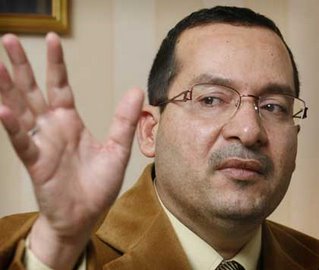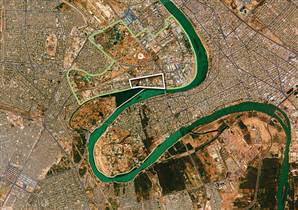U.S. in Iraq for long haul to control world oil supply
The StarPhoenix
Wednesday, January 10, 2007
The editorial, Nasty execution worsens trouble (SP, Jan. 3), only hints at what's unfolding in Iraq . Since the illegal U.S. invasion began almost four years ago, the civilian death toll, according to Iraqi Health Minister Ali al-Shemari, could be as high as 150,000.
Based on congressional appropriations, the cost to Americans of the Iraq war is approaching $360 billion, wildly exceeding the Bush administration's pre-war estimate of $50 billion to $60 billion.
The Pentagon is building what appear to be permanent military bases in Balad, al-Asad, Tallil and al-Qayyarah. Known as "superbases," some of these facilities are so big that they include neighbourhoods, bus routes, fast food outlets and car dealerships. This doesn't look like an occupying power that plans to leave anytime soon.
Then there is the $592 million U.S. embassy complex being built in Baghdad, which locals have dubbed "George W's Palace." The 21 buildings on 104 acres rivals the Vatican in size and includes 619 apartment units, gym, swimming pool, barber and beauty shops, a food court and its own power generation and water-treatment plants. The builder, First Kuwaiti Trading & Contracting, is using low-wage imported workers and has been accused of labour trafficking and worker abuse.
"The U.S. invaded Iraq because it has enormous oil resources, mostly untapped, and it's right in the heart of the world's energy system," points out political activist Noam Chomsky.
"This has nothing in particular to do with access to the oil for import into the United States. It's about control of the oil."
And our Conservative Prime Minister Stephen Harper wanted Canada there.
Joe Kuchta
Saskatoon
©The StarPhoenix ( Saskatoon ) 2007

Iraqi Health Minister Ali al-Shemari

Construction cranes loom above the site of the new U.S. Embassy being built in Baghdad. The embassy will sit on 104 acres, six times larger than the United Nations compound in New York and two-thirds the acreage of Washington’s National Mall. Photographers attempting to get pictures of what the locals call "George W's Palace" are confined to using telephoto lenses.

Building to Stay: A massive new U.S. embassy complex rises in Baghdad, rivaling the size of the Vatican in Rome. In this photo, the $592-million embassy is outlined in white, inside Baghdad's “International Zone,” pictured in green.
[Below is the original letter that was submitted to The StarPhoenix. The passage in red was edited.]
Dear Editor:
The editorial Nasty execution worsens trouble (SP, Jan. 3) only hints at what’s unfolding inside Iraq.
Since the illegal U.S. invasion began almost four years ago the civilian death toll, according to Iraqi Health Minister Ali al-Shemari, could be as high as 150,000.
Based on Congressional appropriations the U.S. taxpayer cost of the Iraq War is approaching $360-billion, a figure that wildly exceeds the Bush administration’s $50-$60 billion pre-war estimate.
The Pentagon is building what appear to be permanent military bases in Balad, al-Asad, Tallil and al-Qayyarah. Known as “superbases” some of these facilities are so big they include neighbourhoods, bus routes, fast food outlets and car dealerships. This doesn’t sound like an occupying power planning to leave anytime soon.
Then there is the new $592-million U.S. Embassy being built in Baghdad the locals have dubbed “George W’s Palace”. The complex – 21-buildings on 104-acres – rivals the Vatican in size. It includes 619 apartment units, gym, swimming pool, barber and beauty shops, a food court and its own power generation and water-treatment plants. The builder, First Kuwaiti Trading & Contracting, is using low-wage imported workers and has been accused of labour trafficking and worker abuse.
Famed linguist and political activist Noam Chomsky points out we’re supposed to believe that the U.S. “would have so-called liberated Iraq even if its main products were lettuce and pickles and [the] main energy resource of the world were in Central Africa.” Not true, he says. “The U.S. invaded Iraq because it has enormous oil resources, mostly untapped, and it’s right in the heart of the world’s energy system.”
“This has nothing in particular to do with access to the oil for import into the United States. It’s about control of the oil,” says Chomsky.
And our Conservative prime minister, Stephen Harper, wanted Canada there.
Joe Kuchta
Saskatoon




0 Comments:
Post a Comment
<< Home